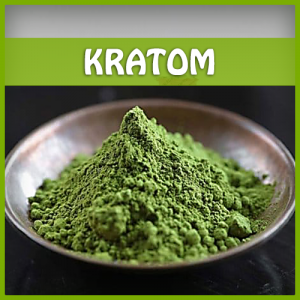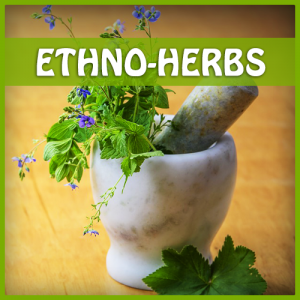Updates
Herbal Repellents for Garden Pests: Protecting Plants Naturally
Gardening is a beloved pastime for many, offering a sense of tranquility and the satisfaction of nurturing beautiful plants. However, garden pests can quickly turn this blissful experience into a frustrating battle. While chemical-based pesticides are commonly used to combat these intruders, they often come with environmental concerns and health risks. Fortunately, nature provides us with an arsenal of herbal repellents that can effectively ward off common garden pests without harmful side effects. In this article, we will explore some herbs that repel pests like aphids, slugs, and beetles, and provide tips on making homemade herbal pest sprays and deterrents.
Mint: A Natural Deterrent
Mint is not only a refreshing herb for tea and culinary delights; it also possesses remarkable pest-repellent properties. The strong scent of mint acts as a deterrent for various insects, including aphids, ants, and flea beetles. To harness the power of mint, plant it in strategic locations around your garden, or create a spray by steeping a handful of fresh mint leaves in boiling water. After the liquid cools, strain it and transfer it to a spray bottle. Spritz the mint-infused spray on susceptible plants to keep pests at bay.
Basil: A Versatile Guardian
Basil, a popular herb in the kitchen, doubles as a potent pest repellent. It emits a strong aroma that repels aphids, mosquitoes, tomato hornworms, and whiteflies. Planting basil
alongside vulnerable plants can provide a protective shield. You can also create a homemade basil spray by blending fresh basil leaves with water. Strain the mixture and use a spray bottle to apply it to affected plants. For added effectiveness, consider intercropping basil with your tomatoes or other susceptible crops.
Rosemary: A Natural Insecticide
Rosemary, a versatile herb known for its culinary uses and aromatic qualities, is also an effective insect repellent. Its strong scent confuses and repels pests like beetles, slugs, and cabbage moths. Place potted rosemary plants around your garden or create a rosemary-infused spray. To make the spray, simmer a handful of fresh rosemary leaves in water for about 30 minutes. Allow the mixture to cool, strain it, and pour it into a spray bottle. Regularly apply this homemade herbal insecticide to protect your plants.
Chives: A Beneficial Border
Chives not only add a delightful onion-like flavor to dishes but can also serve as a natural pest deterrent. The sulfur compounds in chives repel pests like aphids, Japanese beetles, and carrot flies. Planting chives as a border around your garden can help keep these unwanted visitors at bay. Additionally, the purple flowers of chives attract beneficial insects such as bees and butterflies, which contribute to the overall health of your garden ecosystem.
Garlic: A Powerful Guardian
Garlic is renowned for its pungent flavor in cooking, but its strong scent also acts as a powerful deterrent against garden pests. Aphids, spider mites, and snails are repelled by the sulfur compounds found in garlic. Planting garlic bulbs near susceptible plants or creating a garlic spray can help protect your garden. To make the spray, blend several garlic cloves with water and a small amount of vegetable oil. Strain the mixture and spray it on the leaves of affected plants, taking care to avoid direct contact with edible parts.
While these herbs can be effective in repelling pests, it’s important to note that they may not provide 100% protection. Regular monitoring of your plants, along with a combination of other pest control methods, is still necessary to maintain a healthy garden and prevent infestations. Here are a few additional tips to enhance the effectiveness of herbal repellents and maintain a pest-free garden:
* Companion Planting: Take advantage of the power of companion planting by strategically placing pest-repellent herbs alongside vulnerable plants. For example, interplant marigolds with tomatoes to deter aphids and nematodes. The strong scent of marigolds acts as a natural barrier against these pests.
* Rotate Herb Locations: Pests can develop resistance to certain repellents over time. To avoid this, rotate the locations of your pest-repellent herbs each year. This prevents pests from adapting and finding their way back to your plants.
* Regular Inspection: Set aside time for regular inspections of your garden to catch pest problems early. Look for signs of damage, such as holes in leaves, chewed stems, or discolored foliage. Early detection allows for swift action before pests multiply and cause extensive damage.
* Natural Barriers: Create physical barriers to protect plants from crawling pests like slugs and snails. Surround vulnerable plants with materials like crushed eggshells, diatomaceous earth, or copper tape, which create barriers that pests find difficult to cross.
* Diversity in Planting: Promote biodiversity in your garden by planting a variety of flowers, herbs, and vegetables. This attracts beneficial insects such as ladybugs, lacewings, and parasitic wasps that feed on common garden pests. A healthy population of beneficial insects can help keep pest populations in check naturally.
* Soil Health: Healthy plants are less susceptible to pest infestations. Maintain the fertility and health of your soil by regularly adding organic matter, such as compost or well-rotted manure. This creates a thriving environment for your plants, making them more resilient against pests.
Remember, pest control is an ongoing process, and it may require a combination of strategies to effectively manage pests in your garden. By incorporating herbal repellents, practicing good garden hygiene, and encouraging a balanced ecosystem, you can protect your plants naturally and enjoy a thriving, pest-free garden.
In conclusion, herbal repellents offer a natural and eco-friendly approach to safeguarding your garden against common pests. The strong scents and compounds found in herbs like mint, basil, rosemary, chives, and garlic can deter aphids, slugs, beetles, and other unwanted intruders. By utilizing these herbs strategically and making homemade herbal sprays, you can reduce reliance on chemical pesticides while creating a healthy, pest-resistant environment for your plants. Embrace the power of nature and enjoy a bountiful and beautiful garden, free from pesky pests.

























